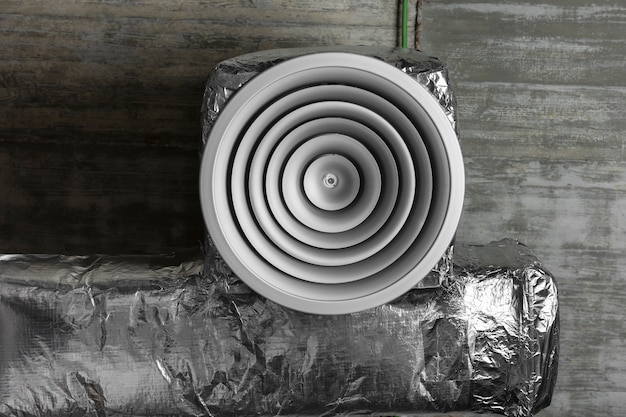Why Clean Worship Spaces Matter: The Spiritual Connection
The Impact of Cleanliness on Worship Experience
Cleanliness plays a pivotal role in shaping the worship experience within any religious setting. When congregants enter a church, their immediate surroundings can evoke feelings of peace, reverence, and connection to the divine. A clean worship space acts as a canvas on which worship is painted; it provides the backdrop for spiritual encounters and community gatherings. Not only does cleanliness physically remove distractions, but it also fosters an environment conducive to spiritual focus and contemplation. Situations where dirt, clutter, or disrepair are prevalent, can detract from the worship experience, leading to discomfort and even disengagement from the spiritual message being delivered. Research has shown that worshippers are more likely to feel at ease and fully participate when the surroundings reflect care and attentiveness. This inverse correlation suggests that clean worship spaces translate into higher levels of congregational engagement, leading to richer spiritual experiences.
Creating a Sacred Atmosphere Through Orderliness
Orderliness is an extension of cleanliness and is integral to creating a sacred atmosphere within worship spaces. Everything, from the arrangement of furniture to the placement of religious artifacts, contributes to the spiritual ambiance of a church. An orderly environment not only signifies respect for the sacred activities taking place but also aids in defining the space’s purpose. For instance, a well-organized altar can enhance the visual presentation of services and create focal points that draw spiritual attention. Furthermore, orderliness allows congregants to navigate the space with confidence, promoting a sense of belonging and community. It helps in reinforcing the teachings of many religious traditions that emphasize simplicity, clarity, and focus in worship. Importantly, when worship spaces are kept orderly, they often reflect the values and ethos of the congregation, mirroring their commitment to shared endeavors and cooperative fellowship.
Mental Clarity and Focus in a Pristine Environment

In the hustle and bustle of everyday life, achieving mental clarity can be a challenge. A pristine worship environment serves as a sanctuary from the chaos, allowing individuals to pause, reflect, and center themselves. The benefits of a clean, uncluttered space extend far beyond aesthetics; psychological studies suggest that humans have an intrinsic response to their environments that can significantly influence mood and behavior. In a clean environment, congregants report feeling calmer, more focused, and better able to engage with the spiritual teachings presented. The serenity provided by cleanliness also supports meditation and prayer, elements pivotal in many faith traditions. Thus, enhancing worship spaces through professional cleaning services is not just about superficial appearances; it involves fostering an atmosphere that nurtures the mind and spirit.
Choosing the Right Professional Cleaning Services: A Comprehensive Guide
Evaluating Expertise in Church-Specific Cleaning
When looking for professional church cleaning services, it is essential to evaluate their expertise in handling the unique needs of places of worship. Unlike standard cleaning demands found in commercial offices or residential buildings, churches often encompass diverse materials, furnishings, and architectural features. Factors such as high ceilings, extensive woodwork, stained glass, and intricate ornamental details require specific cleaning techniques and products to avoid damage while ensuring cleanliness. A reputable cleaning service will have experience working with similar environments and can provide references or case studies illustrating their previous work within community worship spaces. Additionally, insight into their training processes for staff—especially regarding the specific religious items, fabrics, and finishes present in many churches—can ensure the service is respectful and caters to the unique atmosphere of worship carried within such spaces.
Green Cleaning Solutions for Environmentally Conscious Congregations
As the awareness of environmental issues continues to grow, many congregations are seeking to adopt more sustainable practices, including eco-friendly cleaning solutions. Green cleaning not only protects the environment but also creates healthier spaces for congregational members who may have sensitivities to harsh chemicals. Professional cleaning services that offer green solutions will typically use environmentally friendly cleaning products and techniques that minimize environmental impact. These services often emphasize the importance of using biodegradable cleaning agents and certifications from recognized green cleaning organizations. Furthermore, they may implement practices such as using energy-efficient equipment, reducing water usage, and opting for sustainable supply chains. By choosing a cleaning service that practices environmental stewardship, churches can enhance their spiritual mission and commitment to caring for creation.
Cost-Effective Cleaning Plans That Don’t Compromise Quality
Budget constraints are a reality for many churches, making it crucial to find cleaning services that provide value without sacrificing quality. As congregations consider how to allocate their resources effectively, cost-effective cleaning plans become essential. Professional cleaning services should offer flexible packages tailored to the specific needs and budget of the church. It is important to inquire about the scope of services offered, whether it’s routine cleaning, deep cleaning, or special seasonal services, and how these align with financial considerations. Understanding the potential for long-term contracts, discounts for nonprofit organizations, and comprehensive quotes that outline all costs can help in making informed decisions. A focus on value-driven service ensures that churches can maintain a pristine worship space without overstretching their financial capabilities, allowing them to channel more resources toward their core mission and outreach initiatives.
Common Challenges Faced by Churches: The Dirt Dilemmas
High-Traffic Areas: Managing Wear and Tear
High-traffic areas within a church, such as entryways, fellowship halls, and restrooms, face significant challenges regarding cleanliness and maintenance. These spaces are often the first impression congregants and visitors receive, making their cleanliness crucial for overall perception. Regular foot traffic can lead to wear and tear, dirt accumulation, and the need for frequent cleaning. Professional cleaning services can employ specific techniques aimed at managing these wear issues, such as using durable, high-quality materials in flooring choices, which can resist stains and withstand heavy foot traffic. Additionally, implementing strategic cleaning schedules and utilizing specialized equipment can help mitigate the impact of heavy traffic and keep high-use areas clean and welcoming. By addressing the intricacies of these high-traffic zones, churches can maintain a positive atmosphere and ensure visitors feel valued from the moment they enter the space.
Maintaining Historic Elements: Preserving Art and Architecture
For many churches, history, and legacy are tightly woven into their identity, featuring beautiful architectural elements and significant artifacts that require special care. The cleaning of historical components, such as wooden pews, intricate carvings, and stained glass windows, presents unique challenges. It’s essential to use conservationally sound methods that preserve these elements and respect their historical accuracy. Specialized cleaning services, particularly those with experience in historical preservation, can ensure the careful maintenance of these features while utilizing non-invasive cleaning techniques that maintain their integrity. This may include the use of gentle cleaners and protective finishes to prevent wear and tear. By prioritizing the preservation of historic elements, churches can continue to honor their past while providing a beautiful and sacred space for current and future generations.
Seasonal Cleaning Needs: Adapting to Events and Gatherings
Churches are often bustling hubs of activity, especially during specific seasons or special events—think Christmas, Easter, weddings, and community outreach programs. Each of these occasions brings its own set of cleaning challenges that must be anticipated and addressed to ensure the space remains inviting. Professional cleaning services can offer tailored solutions for seasonal cleaning needs, including pre-event deep cleans and post-event restoration. Planning ahead and coordinating cleaning efforts with event schedules can alleviate the last-minute stress of maintaining a clean environment. This adaptability not only ensures that the church presents itself at its best during peak times but also fosters a culture of preparedness among congregational members and organizers. By recognizing the importance of seasonal cleaning, churches can celebrate their community’s milestones in a space that reflects care and respect.
Innovative Cleaning Techniques: Making Worship Spaces Shine
Advanced Equipment for Deep Cleaning Blessings
In the world of cleaning, innovation continues to transform traditional practices with the introduction of advanced cleaning equipment. For worship spaces, leveraging new technologies can enhance the depth of cleaning while saving time and labor. For instance, mechanized floor scrubbers can sanitize large areas more effectively than manual methods, ensuring that each surface shines brilliantly. Similarly, high-efficiency particulate air (HEPA) vacuum cleaners are efficient in removing dust and allergens, improving air quality—a crucial factor in places of worship where community members with various sensitivities gather. These advanced offerings allow cleaning services to provide a level of cleanliness that not only looks good but also promotes health and well-being. The integration of advanced equipment into regular cleaning protocols reflects a commitment to excellence and a passion for creating spaces conducive to spiritual nourishment.
Embracing Technology: Using Apps for Scheduling and Management
The incorporation of technology into cleaning management is not just an added convenience; it is rapidly becoming a necessity. Using apps designed for cleaning services can facilitate better communication, scheduling, and task delegation between church staff and cleaning personnel. These platforms allow for real-time updates, easy coordination, and the ability to track cleaning schedules to ensure consistency. Furthermore, they streamline reporting processes, allowing for quick identification of areas needing attention, thus enhancing workflow efficiency. By embracing these technological advancements, churches can optimize their approach to maintaining cleanliness, ensuring every inch of their worship spaces is addressed systematically and thoroughly. This transition towards tech-enabled cleaning management not only simplifies processes but also enhances accountability and transparency within the cleaning operation.
Regular Maintenance vs. Deep Cleaning: Finding the Balance
Finding the balance between regular maintenance and deep cleaning is a critical aspect of preserving the integrity of church spaces. Regular maintenance tasks, such as routine dusting and vacuuming, help maintain a baseline level of cleanliness that prevents dirt and debris from accumulating. However, deep cleaning is where spaces truly shine, involving more thorough cleaning practices like carpet shampooing, upholstery cleaning, and detailed attention to hard-to-reach areas. Ideally, these two approaches should work in concert with a well-planned maintenance schedule. Regular cleaning should occur frequently, while deep cleaning should be scheduled at intervals that align with events or seasonal changes, ensuring the church remains in tip-top condition, ready to welcome congregants and visitors alike. This duality fosters an environment where both cleanliness and care are reflected in every aspect of the worship space, reinforcing the church’s commitment to providing a sacred and inviting atmosphere.




